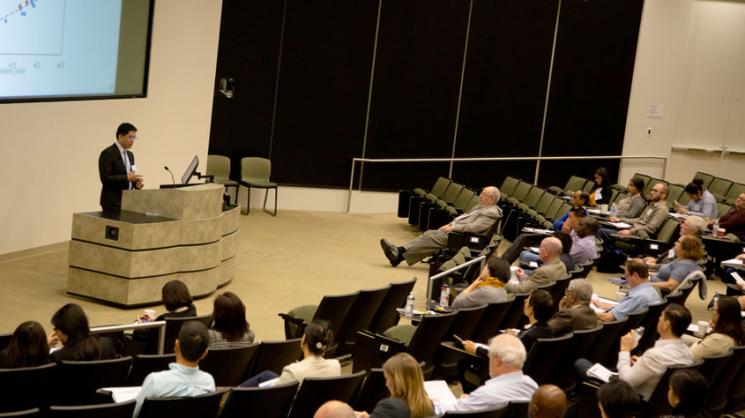Some 120 representatives of industry and academia attended the annual conference of the Brine Chemistry Consortium (BCC) held Nov. 20-21 in the Bioscience Research Collaborative at Rice University.
Founded in 1997, the consortium partners with 26 oil-and-gas and related service companies to solve problems related to brine (also known as produced water) in the oil and gas industry.
Its co-director, Amy Kan, said many of the speakers at this year’s conference focused on problems associated with iron sulfide.
Brine is water containing more dissolved inorganic salt than most seawater. Oilfield-produced brine causes corrosion and mineral scaling in the oil production system and the environment.
Oil and gas production creates “salt water,” a hazardous waste because of its high salt content, hydrocarbons and industrial compounds. Hydraulic fracturing of shale gas well sites produces millions of gallons of this salt water, known as oilfield brine.
BCC’s co-director is Mason Tomson, professor of civil and environmental engineering at Rice. The work of the Brine Chemistry Consortium includes laboratory testing, field research and technology transfer.

